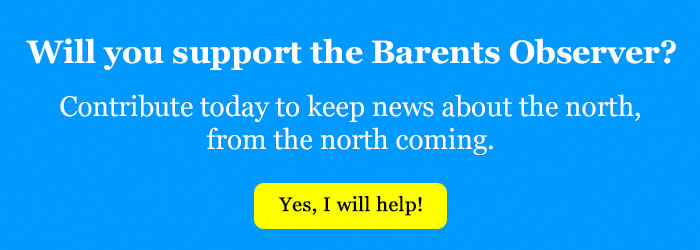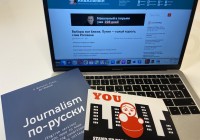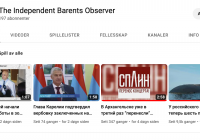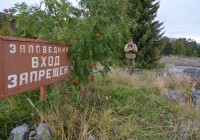
Barents Observer journalist Georgii Chentemirov declared “foreign agent”
ADVERTISEMENT
“It came without any warning,” Chentemirov says. The updated list by the ministry was published Friday evening and was made without any court hearing or official investigations.
“So, I don’t know precisely the reason they had for including me,” Chentemirov says.
In a vague statement, the Justice Ministry claims he “participated in the creation and dissemination of materials to an unlimited circle of people, he received support from foreign sources, and opposed the special military operation in Ukraine.”
Georgii Chentemirov is from Petrozavodsk where he headed the Karelian journalist union.
In September last year, he left Russia and started to work for the Barents Observer together with other journalists in exile reporting uncensored about developments in the North.
The “foreign agents” laws have since 2012 been used by Russian authorities to smear opposition groups, media and individuals who have expressed opinions challenging the narrative of the Kremlin.
When first introduced, the law targeted non-governmental organizations receiving funding from abroad. In 2017, the law was amended to include media outlets and since 2020 also individuals could be listed.
ADVERTISEMENT
Georgii Chentemirov is not the first journalist from Karelia unlawfully to be named as a “foreign agent”. Sergei Marelov from Petrozavodsk was one of the three first individual reporters in Russia to get the smearing stamp in 2020. He disputed he had been involved in political activities and appealed the “foreign agent” listing in for the court. In November 2021, however, a Moscow court refused to review Markelov’s case.
In 2022, Mediazona journalist Alla Konstantinova was declared a “foreign agent.” She has left Russia.
Mediazona itself is also listed. Other well-known news outlets include Radio Svoboda, Meduza and TV Rain (Dozhd).
Individuals that are named “foreign agents” are no longer allowed to join civil service, participate in electoral commissions or donate to political parties. They are also banned from engaging in educational activities or producing information materials for minors.
So far, more than 500 NGOs and individuals are included. All are subject to rigorous auditing and have to add a highly visible disclaimer on private social media posts and reporting inside Russia stating that the text below is written by a “foreign agent”.
Abiding to comply with the burdensome requirement of audit reporting and publishing disclaimers bear hefty fines, and could even result in criminal charges.
The Kremlin’s crackdown on free speech and media has taken to the extreme since President Vladimir Putin ordered the full-scale invasion of Ukraine over a year ago. Even calling the war a war is considered spreading “false information” and could send a journalist to prison for up to 15 years.
You can read all Chentemirov’s articles written for the Barents Observer here; English and Russian.
ADVERTISEMENT
The Barents Observer Newsletter
After confirming you're a real person, you can write your email below and we include you to the subscription list.









